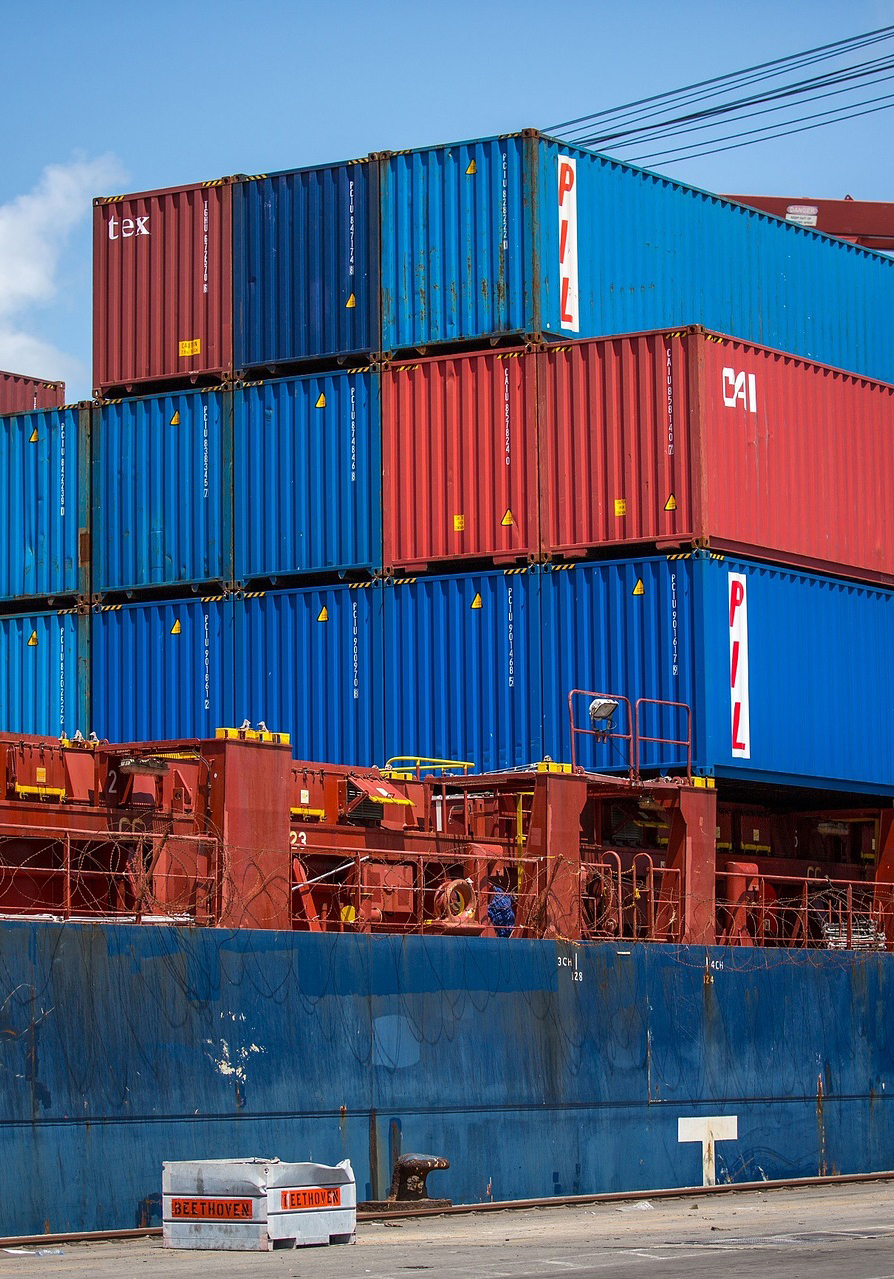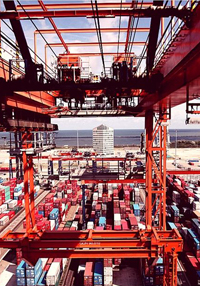The Madrid Protocol is a global mechanism for registering trademarks outside one’s home country. It reduces the time, inconvenience and cost incurred by companies attempting to ensure international recognition and protection of their trademarks. In the 2016 budget, the Government of Sri Lanka, allocated LKR 100 million to speed up accession to the Madrid Protocol. This was a positive response to a long-standing request of Sri Lankan exporters. It will assist and encourage Sri Lankan exporters to invest in branding and trade-marks in their market strategy and growth. This insight shows that the path to Madrid, and its benefits for Sri Lankan exporters, faces a singularly daunting pothole. That pothole is in Colombo, and is created by very low level of trademarks registered each year despite the increase in the number of applications and the extensive delays in processing applications by the public institution responsible for registering trademarks. A path to ‘Madrid’ is not enough, the pothole in Colombo needs a separate solution.
Sri Lanka’s exports as a share of GDP has declined from 33% in 2000 to 13% in 2015. One of the solutions has been to diversify Sri Lanka’s markets. This is because over 50% of Sri Lanka’s exports go to the EU and the United States; and India and China absorb only 7% and 2.9% respectively. A previous Verité Insight titled “Solving dilemma of export diversification” pointed out that the bottleneck might not be in a narrow set of markets, but in a narrow set of products. Over 50% of Sri Lanka’s exports are Apparel and Tea, and the markets Sri Lanka accesses are appropriate to these products. Therefore, solving the export problem requires giving attention to diversifying products as well, not just the markets. The present analysis looks at the success of product diversification with regard to exports to India – signaling both a diversification from traditional markets and traditional products. This success in diversification, however, conceals some vulnerability. A majority of the products Sri Lanka is exporting to India are overly dependent on preferential trade terms with India – so they succeed only in India. This makes them vulnerable on two counts: the reversal of preferences, or the…
Sri Lanka is negotiating an Economic and Technological Cooperation Agreement (ECTA) with India. It envisages liberalising trade in services. The lack of information on what is being negotiated has fueled speculation on the outcomes. A previous Verité Insight titled “Trade in Services: Sri Lanka needs to pull up its socks” pointed out, with reference to current Trade Agreements (TAs) of Sri Lanka, that the devil is really in the details – not the concept itself. This Insight attempts to unearth the devil in the details (pitfalls and opportunities) by a quantitative and case analysis of India’s trade agreement with Japan. Explaining at the outset some of the trade related terminology will help to unpack the implications.
Two previous Verité Insights titled “Sri Lanka missing world’s biggest trade party and its in her backyard” & “Trade Agreements that don’t deliver the goods” published in May and June 2013 pointed out that Sri Lanka is well behind her Asian neigbours in entering into trade agreements, and that those entered into were also deficient. This Insight shows that this is even more so the case with agreements that go beyond trade in goods to cover trade in services. This observation does not give a green light to ETCA (Economic and Technical Cooperation Agreement with India). but it does provide some context. Even though ETCA type agreements is ‘new territory’ for Sri Lanka, many of its neighbors in Asia have been quite vigorous in entering into such goods and services agreements in the last decade. The current debate on ECTA is around whether Sri Lanka should go ahead with the agreement or not. However, the important question to ask is what costs and benefits could accrue to Sri Lanka, and how that can be managed by the scope and structure of the agreement. Whether a trade agreement is beneficial or not depends greatly on those details. The experience with existing…
Tea sector wage negotiations have been in deadlock now for 10 months. There are political reasons for this situation, but also an overarching economic one: global tea prices have declined – as it periodically happens – and the industry is not geared to compete. Tea is an industry in which Sri Lanka has established a global reputation – Ceylon tea, as it is known worldwide, is considered to be amongst the best black tea in the world. This is mostly a result of Sri Lanka’s climatic and geographic conditions, which yield a quality of tea that is exceptional. Post-independence, Sri Lanka started off with an industry that was inherited. The tea plantations came not only with factories and machinery, but even workers who had been transplanted from India by the British, who served in poor and difficult conditions in the tea estates. The industry in Sri Lanka has relied mostly on its inherited position and first mover advantage in the world. Today it is in a crisis of its own brewing – the advantage of having poorly paid workers is diminishing, and the industry has not succeeded in adding to its productive value to face global competition. Currently, the average…
මෙෙ අධයයනය සිදු කරන ලද්මද් මවරිමේ පර්මේෂණ (Verité Research) ආයතනමේ ආර්ික පර්මේෂණ කණඩායෙ විසිනි. සුභාෂිණි අමේසිිංහ (ආර්ික පර්මේෂණ ප්රධානි), නිලිංගිකා ප්රනාන්දදු, මර්වතී ඥාණසම්බන්දදන්ද සහ සීzනා හුමසේන්දමෙන්ද සැදුම්ලත් ලත් සාොජිකයින්ද පිරිසක් මෙෙ කණ්ඩායෙට ඇතුළත් විය. මෙෙ වාර්තාව සකසේ කිරීමම්දී පර්මේෂණ කටයුතු සඳහා සහාය ලබාමදමින්ද සෙසේත පර්මේෂණ සහ කර්තෘ අධීක්ෂණ කටයුතු සිදු කරන ලැබුමේ නිශාන්ද ද මෙල් විසිනි. ජාතික අපනයනකරුවන්දමේ ෙණ්ඩලමේ (NCE) සහාය ඇතිව මවරිමේ අයතනය ෙඟින්ද මෙෙ පර්මේෂණ වාර්තාව සකසේ කරනු ලැබිණ. සාර්ථක ෙඟ මපන්දීම් තුළින්දද සම්ුඛ පරීක්ෂණ සඳහා පහසුකම් සපයමින්දද සාකච්ඡා අිංෙ සඳහා සහභාගී මවමින්දද මෙෙ පර්මේෂණ කාර්යය ඉටු කර ෙැනීමෙහිලා දැක්ූ සහමයෝෙය සම්බන්දධමයන්ද ජාතික අපනයනකරුවන්දමේ ෙණ්ඩලය මවත මවරිමේ පර්මේෂණ ආයතනමේ ආර්ික පර්මේෂණ කණ්ඩායෙ සිය සේූතිය පුදකර සිටි.
Sri Lanka has been driving post-war growth in boom and bust cycles on the trade deficit; and fiscal measures have been used, especially spending on construction, to offset the bust cycles. This strategy is now being squeezed to pulp and it is not sustainable going forward.
“In the context of growing bilateral relations with India, this study by Verité Research takes a look at the current status of Sri Lankan exports to India under the existing India – Sri Lanka Free Trade Agreement (ISFTA). The study identifies Non-Tariff Barriers to be a critical factor in the lackluster performance of exports to India in recent years. The case of food exports serves to highlight how compliance with Indian standards and regulations forms one such significant barrier, due to India’s non-recognition of testing and certification conducted outside its borders. The proposed solution to this problem – a Mutual Recognition Agreement – is one that is easily implementablewhich will help exporters enjoy the full benefits of duty concessions offered by the ISFTA and if done right, will help build confidence in the benefits of further integration.”
“In the context of growing bilateral relations with India, this study by Verité Research takes a look at the current status of Sri Lankan exports to India under the existing India – Sri Lanka Free Trade Agreement (ISFTA). The study identifies Non-Tariff Barriers to be a critical factor in the lackluster performance of exports to India in recent years. The case of food exports serves to highlight how compliance with Indian standards and regulations forms one such significant barrier, due to India’s non-recognition of testing and certification conducted outside its borders. The proposed solution to this problem – a Mutual Recognition Agreement – is one that is easily implementablewhich will help exporters enjoy the full benefits of duty concessions offered by the ISFTA and if done right, will help build confidence in the benefits of further integration.”
මෙම සියවස ආරම්භයේ සිට ශී්ර ලංකාවේ අපනයන එහි දළ දේශීය නිශ්පාදිතයේ ප්රතිශතයක් ලෙස පමණක් නොව ගෝලීය අපනයනවල ප්රතිශතයක් ලෙස ද, පහත වැටී තිබේ. නිදහස ලැබුණු වකවානුවේ දී, වර්තමානයට වඩා ඉහළ ගෝලීය වෙළදපොළ කොටසක් අත්කර ගැනීමට ශී්ර ලංකාවට හැකිව තිබුණි. මෙම අධ්යනය ශී්ර ලංකාව මෙතෙක් කල් මුහුණපා ඇති බාධක මැඩපැවැත්වීමට සහයෝගයක් ලබාදිය හැකි ප්රතිපත්ති යෝජනා හදුනාගැනීමට දරණ ප්රයත්නයකි.






